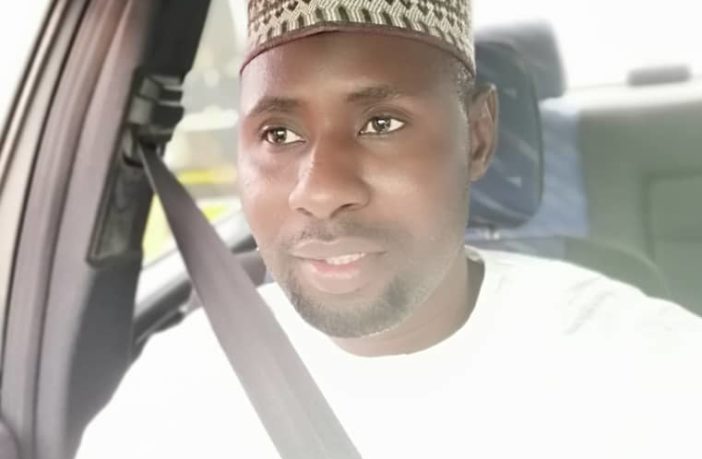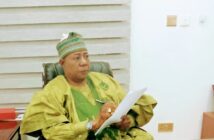Freedom of speech is one of the cardinal pillars of democracy and an accelerator of transition to democratic consolidation. But in Nigeria, free speech is routinely being threatened. For instance, the incessant and flagrant clampdown on activists, journalists and preachers who are bold enough to call out the downright incompetence, impunity and cluelessness of those who lead them is quite alarming. Some of them are being harassed and intimidated, others are detained for several months without trial or are being denied bail even after securing an order from a court of competent jurisdiction.
Freedom of expression, rights to lawful assembly and peaceful protest are inalienable as they are guaranteed by the Constitution of the Federal Republic of Nigeria and the United Nations’ Universal Declaration of Human Rights. But while pro-government protesters are given the freedom to conduct their rallies, those oppose to its unpopular policies are being suppressed using state security apparatuses. As Rosa Luxemburg aptly argues “freedom only for the members of the government, only for the members of the Party…. is no freedom at all. Freedom is always the freedom of the dissenters.”
As Buhari’s government intensifies its efforts to gag dissent, concerns about the shrinking of civic space and heightened risk of democratic regression are becoming more and more pronounced. This is evident in the scale of public outrage that trailed the illegal detention of the organizers of the #RevolutionNow, Omoyele Sowere and Bakare Mandate. When civil rights are denied, accountability in governance is well-nigh impossible and, consequently, politics of irresponsibility prevails and the nation plunges into dictatorship. Therefore, Nigerians need to be more vigilant in averting the seeming erosion of civic space and subversion of democratic norms. If we remain acquiescent, despondent or complacent in the face of ceaseless assaults on our civil rights, our rulers will become bolder in wrecking the ideals upon which democracy is built.
In 1983, Major General Buhari (as he was then known) overthrew a democratically elected government. The military government he formed became notorious for promulgation of draconian and repressive laws, such as the infamous Decree 4, which criminalized dissent. Nigerians forgave his heinous act and elected him as their civilian president. Alas, the brazen violations of civil and democratic rights and the wanton disregard for the rule of law under Buhari’s watch give Nigerians the impression that he is an unrepentant fascist.
The overt endorsement of the Social Media Bill by the APC-led government is also a manifestation of its anti-democratic posture. In his inaugural speech in May 29, 2015 president Buhari acknowledged the role played by the social media in securing his election victory. Surprisingly, however, the government he leads is now unwilling to tolerate the censure his predecessor was subjected to by the same media he praised not quite long ago!
Selective obedience to court order is now a commonplace in Nigeria. Governments swiftly obey orders that suit them while ignoring those that do not. For example, when the Code of Conduct Tribunal granted an order to President Buhari to suspend the former Chief Justice of Nigeria, Walter Onnoghen, he happily implemented the order. But when courts ordered for the release of Sowere and the leader of Islamic Movement in Nigeria, El-zakzaky, the same government has blatantly refused to comply! What this means is that the State has now become a promoter of lawlessness.
The principle of separation of power is increasingly being threatened. The legislature has been compromised, it is a bunch of yes boys of the Presidency. Executive bills are being passed by lawmakers without robust debates and, worse still, sometimes even before they are privy to its content. In essence, the legislature is seemingly a mere rubber stamp. The judiciary is also not spared: intimidation of judges, disregard for court order and desecration of court are the order of the day. When the independence of these organs is undermined through whatever means, executive recklessness prevails.
The integrity of our electoral process is rapidly diminishing. As I argued elsewhere, “voter suppression, ballot snatching and stuffing, vote-buying, violence, militarization of polls, among other forms of irregularities and malpractices, have become the defining features of our elections.” The outcome of polls is not determined by popular vote. Consequently, elections no longer provide opportunities for the electorate to humiliate leaders who have underperformed. In other words, those who have performed abysmally can secure reelection as long as they have control over security agents and possess money to hire thugs and buy votes.
Politics of brinksmanship is pervasive in Nigeria, largely because holding political offices is the most lucrative occupation, as holders have unfettered access to public purses. And since we have no viable system of accountability, they brazenly plunder our collective patrimony, often without any serious consequences. Therefore, struggles to capture and retain political office becomes a do or die affair. More worrisomely, this politics of brinksmanship has made democratic consolidation difficult and, worse still, is aggravating democratic backsliding.
Poor economic management adversely effects transition to democratic consolidation. The dwindling living condition of Nigerians, which is occasioned by imposition of neo-liberal and anti-poor policies, has become horrible. Withdrawal of subsidies, devaluation of naira, increase in taxes and their attendant consequences on the cost of living, declined investments in social services – such as education, health, portable water and electricity – have not only denied us the dividend of democracy but have deepened the crises that pose existential threat to the country’s corporate existence.
Nigeria is gradually getting enmeshed in debt crisis. According to the African Development Bank (AfDB), 50% of the country’s revenue goes to debt servicing. Also, a Premium Times investigation shows that a quarter of the 2020 budget will go to debt servicing. Yet, Nigerian government has continued to borrow. It’s unthinkable that while the government claims that it has recovered looted funds, blocked leakages and expanded our revenue base, it has continued to borrow money to carry out its obligations. One of the terrible consequences of this over borrowing is that the county is left with little resources to invest in the provision of essential social services.
From the foregoing analyses, one thing is very clear: Nigeria is experiencing what Nancy Bermeo calls democratic backsliding. This is driven by abuse of civil and democratic rights; disregard for the rule of law; weakened independence of the legislature and judiciary; decline in the integrity of electoral process and politics of brinksmanship; poor management of the country’s economy and imposition of unpopular/anti-poor policies, which makes the democracy unbeneficial to the toiling Nigerians.
Aminu Ali wrote from the Department of Sociology, Bayero University, Kano. He can be reached via email aminuali@yahoo.com



